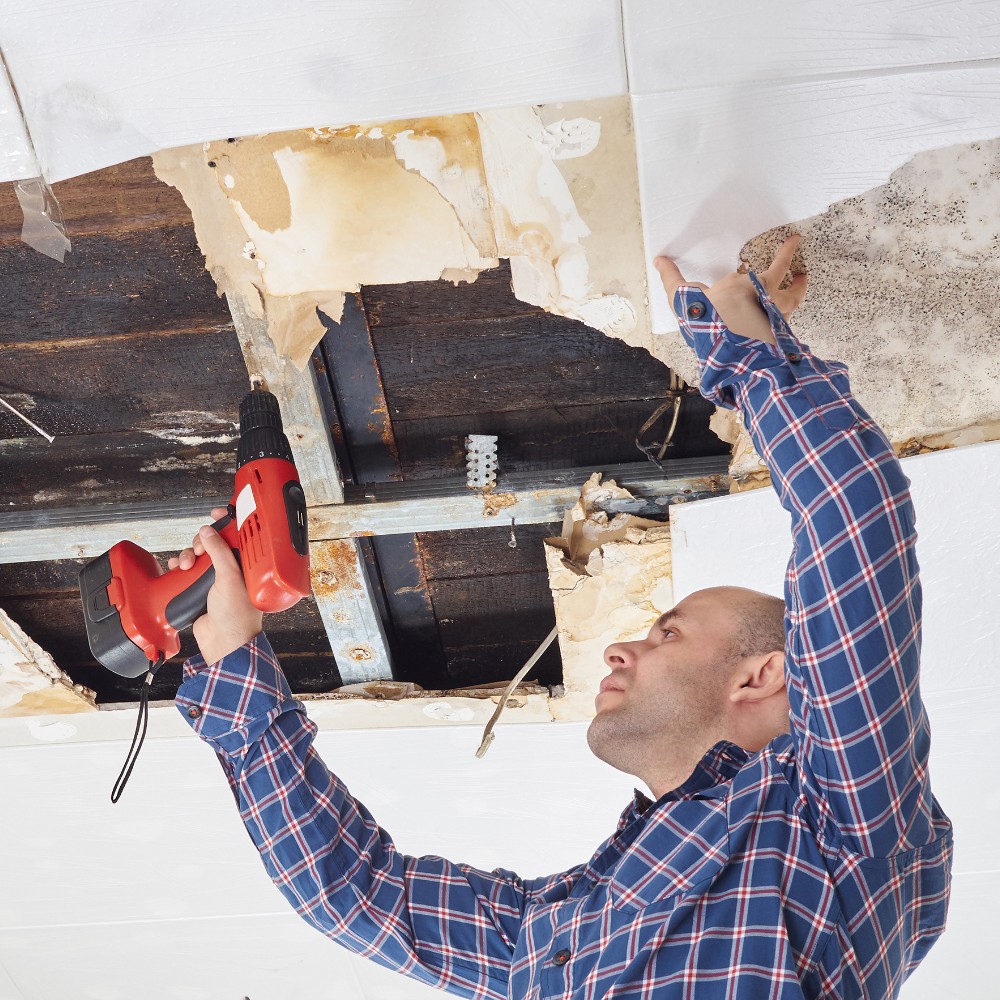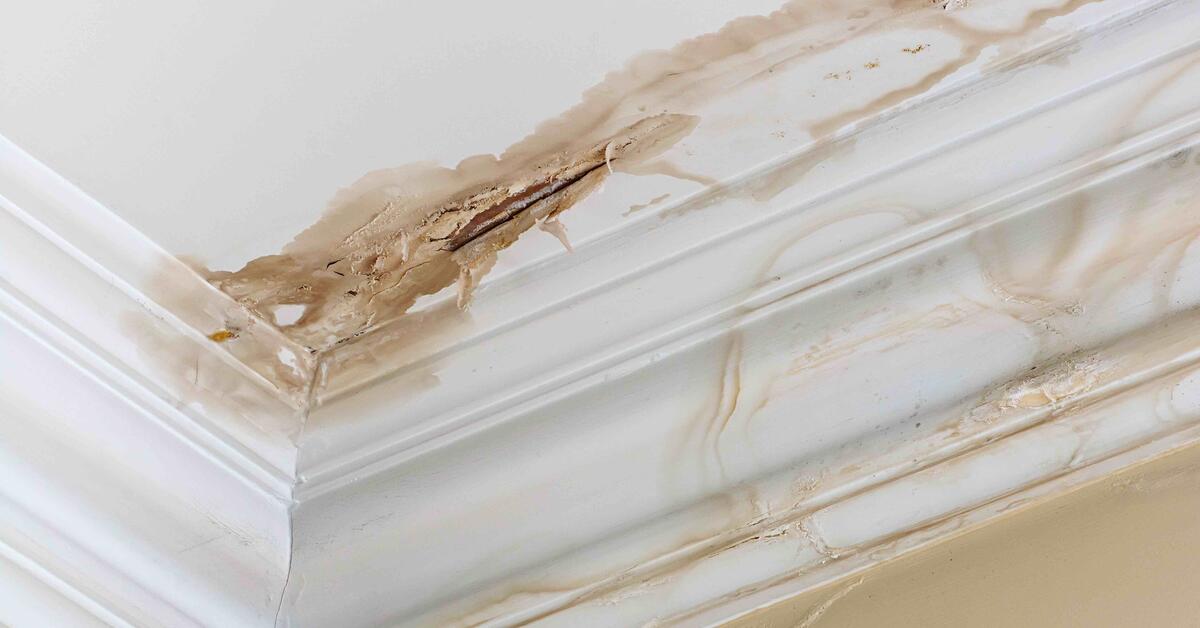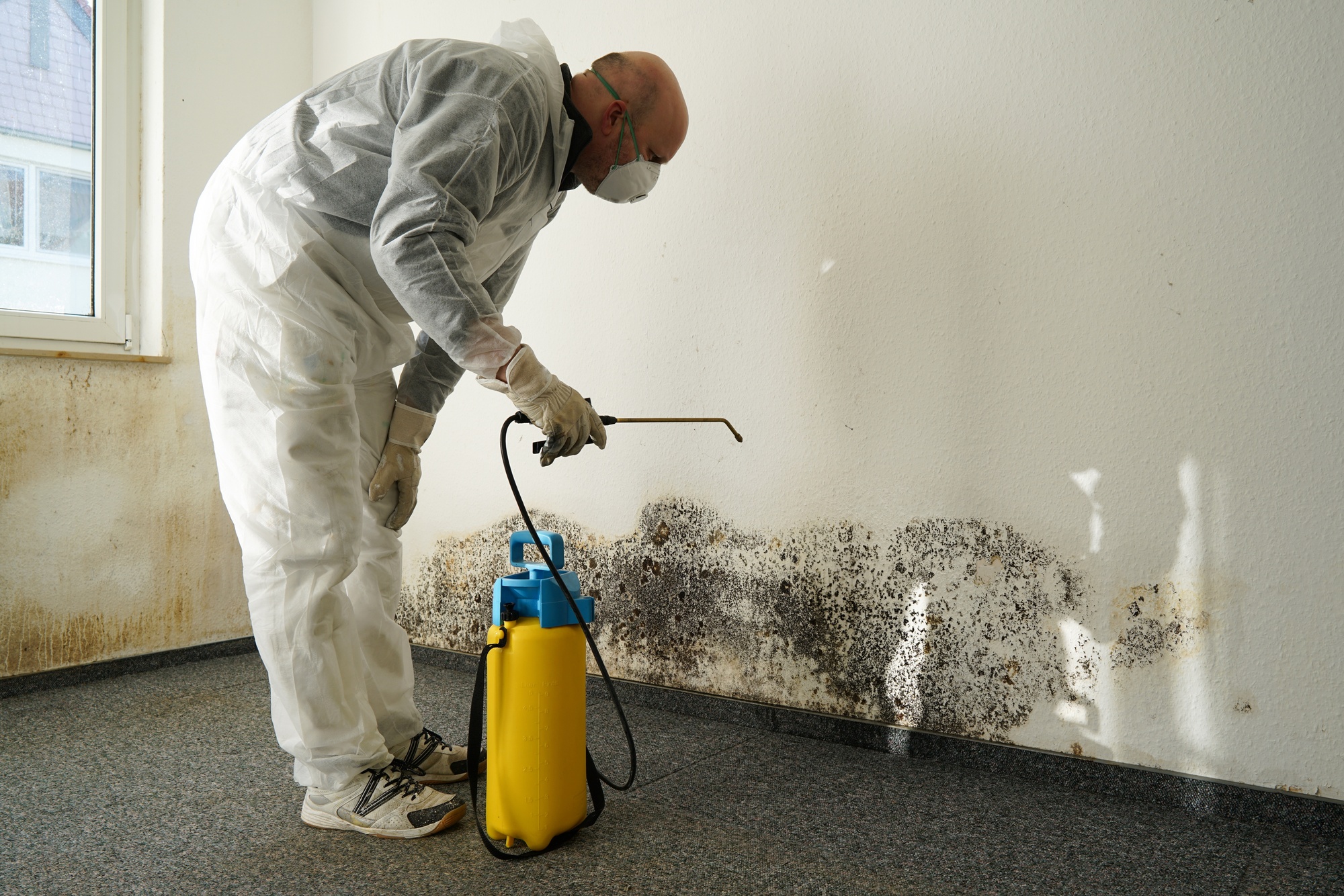Emergency Water Leak Repair to Prevent Further Property Destruction
Emergency Water Leak Repair to Prevent Further Property Destruction
Blog Article
The Refine of Water Damage Clean-up: Ensuring Your Home Is Brought Back Efficiently
Water damage can be an overwhelming challenge for home owners, demanding a precise and organized clean-up procedure to bring back safety and performance. Originally, an extensive assessment is critical to recognize the extent of the damages and figure out the proper removal actions. Following this, reliable water removal methods play a pivotal function in alleviating further damage. The nuances of drying, disinfecting, and ultimate reconstruction are similarly essential and commonly forgotten. Comprehending these stages can make a significant difference in the end result of your home's restoration, motivating a closer consider what each step entails.
Analyzing the Damages
Upon uncovering water damages, the primary step is to extensively evaluate the extent of the effect. This preliminary assessment is vital, as it assists determine the needed steps for efficient cleanup and remediation. Begin by examining the affected areas, consisting of walls, ceilings, floorings, and personal items, to recognize the resource of the water intrusion, whether from flooding, leakages, or condensation.
Recording the damages is vital for both insurance cases and planning remediation efforts - damage restoration services. Usage photos and created notes to catch the intensity of the damage, noting any affected structural aspects and products. Pay special focus to locations that may not be promptly noticeable, such as behind wall surfaces and under rugs, as concealed dampness can bring about more issues, consisting of mold growth
In addition, evaluate the timeline of the water exposure. Eventually, a thorough evaluation lays the groundwork for a successful water damage cleaning process, ensuring that all impacted locations are attended to properly and completely.
Water Extraction Methods

Specialists typically utilize submersible pumps for bigger volumes of water, which can swiftly reduce flooding in cellars or various other impacted areas. For smaller amounts, wet/dry vacuums are usually made use of to draw out recurring dampness from rugs and difficult surface areas. Additionally, using mobile extractors enables for targeted removal in confined rooms or locations with fragile materials.
In circumstances of infected water, such as sewage or floodwater, advanced removal strategies might include the use of biohazard tools to guarantee safety and compliance with health and wellness guidelines. High-powered extraction tools are critical in decreasing water retention in structural materials, which can lead to mold development and architectural degeneration otherwise resolved promptly.
Inevitably, the efficiency of water extraction techniques plays an essential function in the total success of the water damages clean-up process, preparing for succeeding repair efforts.
Drying and Dehumidification
As soon as standing water has been effectively extracted, the next vital phase in the water damages clean-up process is drying out and dehumidification. This step is important to protect against further damages and mold and mildew development, which can occur within 24 to two days in wet atmospheres.
To achieve efficient drying out, specialized devices such as industrial-grade you can find out more air movers and dehumidifiers is employed. Air moving companies distribute air across wet surface areas, boosting evaporation rates, while dehumidifiers reduce humidity levels in the air, promoting a favorable atmosphere for drying out. The combination of these devices ensures that wetness is extracted from wall surfaces, home furnishings, and floorings, permitting them to completely dry completely.
It is necessary to check the drying procedure very closely. Professionals commonly make use of dampness meters to analyze the wetness content in numerous products, guaranteeing that all influenced locations get to acceptable dryness degrees. This meticulous technique aids to stop concealed wetness pockets that can bring about architectural damage or unhealthy mold and mildew growth.

Cleansing and Sanitizing
After the drying and dehumidification phase is total, the following vital action in water damages cleanup is cleaning up and disinfecting the affected areas. This procedure is vital to stop the growth of mold and mildew, germs, and various other microorganisms that grow in moist settings.
The cleansing stage commonly includes removing any kind of debris, dust, and pollutants from surfaces using specialized cleansing representatives. For tough surfaces, a mix of soap and water or industrial cleaning products is usually utilized. Soft materials, such as upholstery and carpetings, may need extra comprehensive cleaning approaches, including vapor cleaning or deep removal techniques, to make certain detailed sanitation.

Sanitizing adheres to cleansing, utilizing EPA-approved disinfectants to eliminate unsafe microorganisms. This step is important, especially in locations that might have come into contact with floodwaters or sewage, as these resources can position severe health and wellness threats.
Additionally, it is essential to deal with any kind of continuing to be smells, which might require the use of smell neutralizers or innovative techniques like ozone treatment. Correct cleansing and sterilizing not only restore the safety and security and health of your home however also prepared for successful reconstruction and fixings in subsequent phases of the water damages cleaning process.
Repair and Fixings

As soon as the assessment is complete, repair initiatives can start. This generally includes repairing or replacing broken products, ensuring that all job abides by local structure codes and standards. If drywall has actually been compromised, it will certainly need to be eliminated and replaced with new product. Additionally, flooring might call for comparable interest, depending upon the level of water exposure.
It is crucial to involve seasoned restoration experts throughout this process, as they have the proficiency to handle intricate repair work successfully. They can help mitigate potential future concerns, such as mold and mildew growth or architectural instability, thus ensuring a risk-free and habitable living setting. Ultimately, efficient remediation and repairs bring back the home's honesty and boost its total worth.
Final Thought
In final thought, the process of water damages clean-up is essential for bring back a home to its pre-damage problem. Each phase, from assessing the damages to applying effective water removal strategies, followed by comprehensive drying, sterilizing, and required repair work, plays a necessary role in making certain security and compliance with building criteria. Efficient implementation of these actions not just minimizes instant damages however additionally enhances the lasting honesty and worth of the residential or commercial property.
Water damage can be a complicated obstacle for house owners, requiring a careful and organized cleaning procedure to restore security and performance. Ultimately, a comprehensive evaluation lays the foundation for an effective water damages clean-up procedure, ensuring that all affected areas are addressed efficiently and completely.
Reliable water extraction methods are necessary in minimizing damages and stopping more issues adhering to a water intrusion event.In verdict, the process of water damage cleanup is vital for recovering a home to its pre-damage problem. Each stage, from analyzing the damage to applying effective water extraction methods, adhered to by thorough drying out, sanitizing, and required fixings, plays an important duty in guaranteeing safety and conformity with building standards.
Report this page